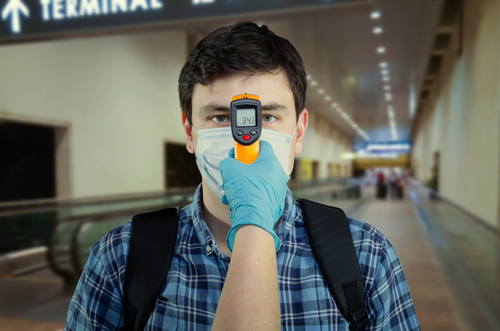
U.S. Sens. Maria Cantwell (D-WA) and Rick Scott (R-FL) introduced legislation Friday that would require the Transportation Security Administration to implement temperature screenings at airport checkpoints to promote safe air travel during the COVID-19 pandemic.
Cantwell, the ranking member of the Senate Committee on Commerce, Science and Transportation, said the temperature screenings would keep travelers and airline industry employees safe.
“Americans deserve all the available tools to fight COVID-19. For workers and the traveling public, a temperature check program provides important data. The legislation I introduced would require TSA to use innovative temperature screening technology to better protect passenger and worker health, and build public trust in the aviation system,” she said.
The bill would also charge the TSA with testing the technology in various scenarios before being rolled out across the country.
“As our economy re-opens and Americans begin traveling more, we have to do everything we can to make sure travel is safe. We also have to ensure consumers are protected from unfair pricing tactics from airlines. Since the beginning of the pandemic, I’ve been calling for temperature checks for passengers of mass transit as a commonsense way to help keep Americans safe and healthy,” Scott said. “This legislation will enable temperature checks while also ensuring airlines are flexible with customers who get sick following the purchase of a flight. If passengers are not allowed to fly due to a fever, airlines will have to work with the customer to reschedule or cancel the flight at no cost.”
If passed, the legislation would require TSA to establish a pilot program within 30 days to test temperature screening technology. The 120-day pilot program would be conducted at diverse TSA checkpoints to reflect differing passenger throughputs. Additionally, the TSA administration would have to incorporate protections for personal and medical privacy, as well as accommodate those with disabilities or religious exemptions. The nationwide roll-out should start no later than 90 days after the pilot program concludes, according to the legislation. And the directive to require airlines to temperature screen travelers and employees would have to come from the U.S. Secretary of Transportation.
Passengers denied travel because of the temperature screening would be allowed to cancel or change their flight at no cost, the legislation said, and workers with fevers would be subject to their employer’s leave practices.
The bill is supported by the Transport Workers Union of America, the Association of Flight Attendants International, the AFL-CIO Transportation Trades Department, Airlines for America, the U.S. Travel Association, and others.